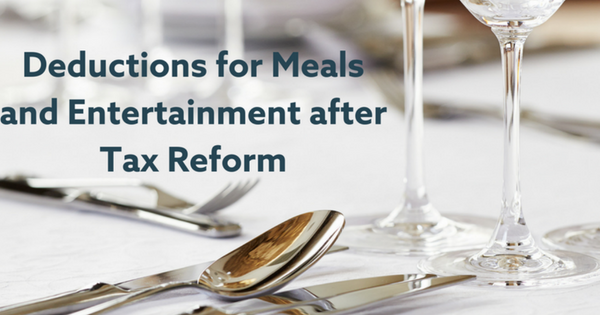
Prior to the Tax Cuts and Jobs Act, a meal incurred during, directly before or after a sporting event or associated with entertainment was complimentary and inseparable. Both the meal and the entertainment qualified for a 50% deduction. With the Tax Cuts and Jobs Act, the question yet to be determined is – does the elimination of the deduction for entertainment expense separate that specific portion from the meal expense? Is an associated meal handcuffed to the entertainment, therefore non-deductible, or is the meal separate and distinct, qualifying a for 50-percent deduction?
A Real Life Example to Question How to Properly Deduct Meals and Entertainment
Let’s say for example, Bob invites a client to join him in attending a Philadelphia Eagles football game. Bob and the client discuss business over dinner at a Club inside the stadium, apart and aside from the game and the actual seats. The cost of the tickets is $400, which is clearly not allowed as a deduction post Tax Cuts and Jobs Act. However, assume the cost of the meal is $100. Is this $100 expense deductible at 50-percent as a meal, or is it coupled to the entertainment expense and non-deductible? This practitioner question remains unanswered early in 2018 and will likely result in IRS technical correspondence in the near future.
Surgent Commentary: Our Best Guess at Food, Beverage, and Entertainment Expensing
Surgent can anticipate that future guidance will establish the above meal is deductible at 50-percent. Regardless of the above answer, practitioners may advise clients to establish new or additional accounts with which to classify meals into 100-percent, 50-percent, and 0-percent deduction.
For tax practitioners who anticipate advising clients with respect to client and employee provided entertainment expenses, professional dues and entertainment facilities, Surgent is offering a premium webinar: Food, Beverage, and Entertainment Expensing After Tax Reform (ELEX). This program is a two-hour intensive webinar on the changes recently made to the deductibility of entertainment and lobby expenditures that practitioners will need to advise their clients.
Dennis P. Benvie MS, CPA is Director, Tax and Advisory Content, for Surgent Professional Education. He has been in practice for more than 30 years and has been a national CPE Discussion Leader for 25 years.




